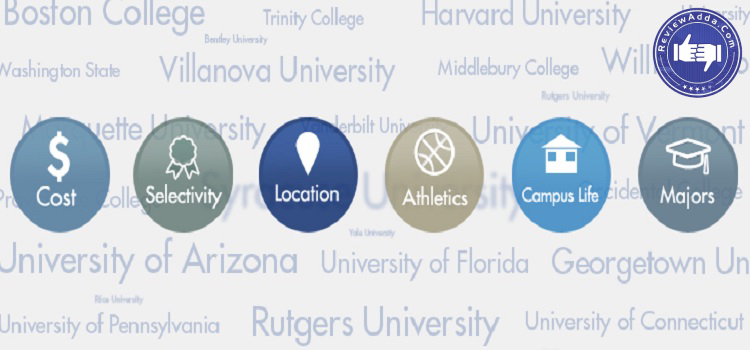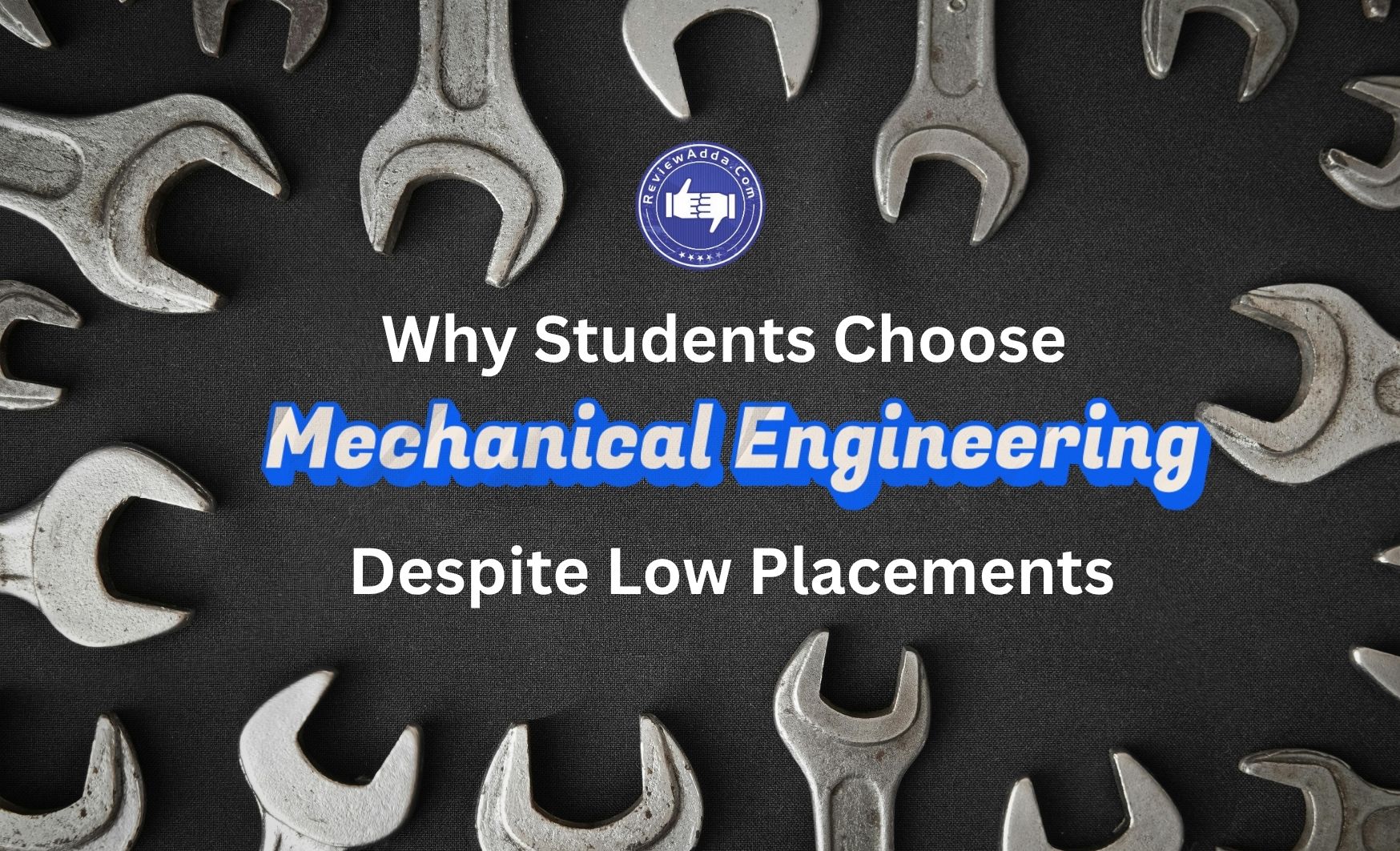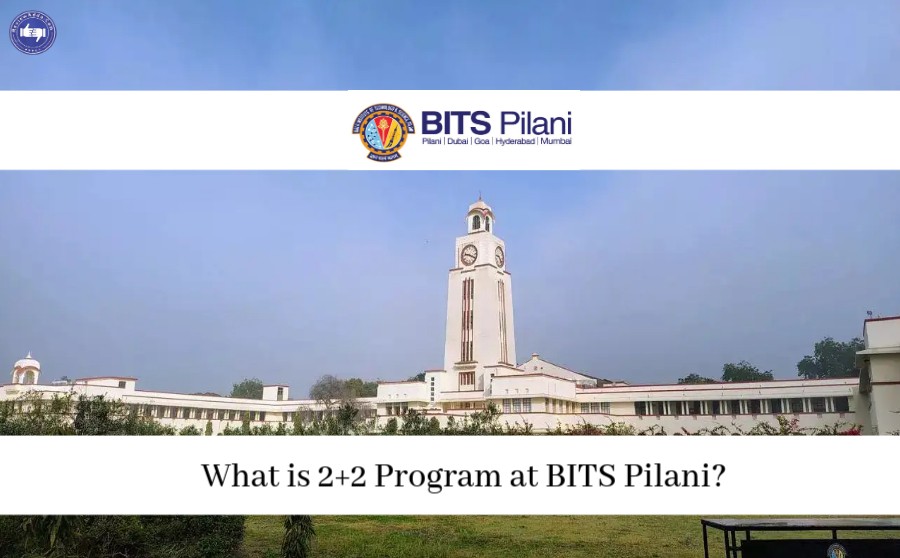Topic We Cover: How to Find Best Fit Colleges to Apply
1. Take Common Counselling about your course & stream platform
2. Research [Budget/Score/Geographic/Course/Stream]
- Academics and majors
- Cost, financial aid, and affordability
- Location and distance from home
3. Shortlist at least 10 University/Colleges
4. Check Reviews & Ranking of Shortlist Colleges with compare
- Student review and testimonial sites
- Individual college websites
5. Narrow down to 5 Colleges and take action to a fill-up form
- Learn more about colleges
- Create your own college rankings system
- Lock in your safety, reach and match colleges
- Actually applying
6. Appear all 5 colleges/universities entrance exam or GD or PI for experience
7. Take Expert College Counselling Advice to make the final decision
8. Appear in the orientation program to know better about university/college
9. Make a back-up at least 1 College in case if you find the current college/university
10. Give your actual feedback in ReviewAdda Platform to guide your juniors
11. Conclusion
To find Best-Fit Colleges to apply, you need to understand more about the factors that provide the individuality and reputation of a college. To understand what can influence your experience in and out of the classroom. Create your own personal list of college search criteria to find the Best Colleges to Apply.

Step 1: Take Common Counselling about your course & stream platform
Often, students are confused about their Selection of Course and stream for which they require counseling from others. Students can take counselling in several ways such as-
Talk and discuss with teachers/ parents/seniors: Occasionally students take wrong decisions due to lack of knowledge. So, counselling from experts and knowledgeable people always works. On many occasions, students avoid their passion and follow their parent’s decisions. So, it is necessary to do a healthy discussion with parents and conveying about their own real happiness should not be missed out during this phase.
Visit a career counsellor: For better clarification, a student can visit some career counsellor like ReviewAdda who will conduct individual counselling which will help the student to understand the right course and stream after intermediate. To explore career choices and to help a student plan his/her next step, attending career guidance, seminars, educational fairs would also be a good idea.
Decision making and taking action: This is the concluding stage of opting for a stream. Selecting the right stream makes an essential enhancement in the career path of students hence get inputs from people and various sources like ReviewAdda but take your own final decision. There is no good and bad stream and in every field, there are a lot of opportunities. To make a successful career one just needs to put all his/her efforts. Choose wisely and all the best.
Step 2: Research [Budget/Score/Geographic/Course/Stream]
While looking for best-fit college one question always comes to mind, does this college have what you’re looking for?
As you well understand, when researching colleges there are a lot of factors to acknowledge. And needs and wants of every student will be different. However, the below-mentioned apply to just about everyone. They’re thorough, but this is how you find a match of the best college and make the Most informed college choice possible.
Here are the general college search criteria categories to find Best fit colleges to apply:
- Academics and majors
- Cost, financial aid, and affordability
- Location and distance from home
- The campus community and social life
- Athletics and other extracurricular
- Size
- Selectivity
- Career services and other support
Academics and majors
To one day get a degree, you are enrolling in college, so it’s apparently not surprising that academics are one of the most essential parts of the college search. But if you don’t understand or decide what you want to study, there’s no reason to go crazy! There are lots of students who enter college undecided. In fact, there are Several Prestigious Institutions that want a student to pay out the 1st year or two analyzing the academic options—and gives a good chance to the students to change the mainstream.
Instead of focusing on schools that have the major you want (or think you want), consider college academics in a broader way. Look for schools that have a good depiction of your concern, making it effortless for you to select or change your major later on.
To narrow down your academic interests there is a good way is to think about which subject and activities you enjoy most. Focus on the subjects you’re desirous about. To consider your end career goal and work backward is a strategy. What is your dream job? You can also find out about some of the top professionals are in that field and where they went to study and what they studied.
In addition to majors, you should ask about favorable circumstances for research, internships, and mentoring, which can be hugely effective and helpful. To check out the Campus Facilities; the labs, art studios, and other academic resources up-to-date and well-equipped is also a good idea. Experience with advanced technology will always serve you well.
Cost, financial aid, and affordability
To start your college search by eliminating certain schools because they have an unaffordable price tag can be a big mistake. Undoubtedly, the affordability of college will weigh more on their decision-making process for most of the students and their families.
However, the starting price like tuition, fees, room, board, books, etc. will infrequently be the final price you pay. Most colleges and universities appreciate helping students afford their education. And financial help changes everything. In fact, you might find the unreasonable school that seemed out of reach is actually your most affordable option once you get their monetary help award letter.
College students get monetary support through a huge range of sources, such as Academic Scholarships, special capability awards (for musical talents, athletics, leadership), diversity grants (multicultural, ethnic background), or on-campus employment (work-study). Students also get money based on the results of their FAFSA (Free Application for Federal Student Aid) and/or the CSS/Financial Aid PROFILE (College Scholarship Service by the College Board).
Also, pay attention to the freshman-to-sophomore retention rate and the four-year graduation rate in your college cost research, because they often signify a school’s true value.
On the spreadsheet of your college search, list financial numbers like tuition and other costs, along with the avg. financial help package (you can also update the sheet with your actual financial aid award after you get your acknowledgment and financial aid letters). That way you'll have plenty of data points to look at when making your last college choice. A perfect option that you and your family can afford.
 Get Updated Review ( Voice Based Alumni Feeback)
Get Updated Review ( Voice Based Alumni Feeback)
-
 Check Review (Alumni Feedback) - Lovely Professional University - [LPU] – Click Here
Check Review (Alumni Feedback) - Lovely Professional University - [LPU] – Click Here -
 Check Review (Alumni Feedback) - Amity University – Click Here
Check Review (Alumni Feedback) - Amity University – Click Here -
 Check Review (Alumni Feedback) - Bennet University – Click Here
Check Review (Alumni Feedback) - Bennet University – Click Here -
 Check Review (Alumni Feedback) - SRM University Sonipat – Click Here
Check Review (Alumni Feedback) - SRM University Sonipat – Click Here -
 Check Review (Alumni Feedback) - Ansal University – Click Here
Check Review (Alumni Feedback) - Ansal University – Click Here
Location and distance from home
Now, the nest thing is the Best location of college for you. In a big city, you’ll have an approach to exciting theater, activities, from concerts, and art exhibits to shopping and nightlife. However, if you adopt starry nights to city lights, you might be happier at a more rural school. Seeking for the best of both worlds? Consider a suburban school with an easy approach to the city.
Maybe you would like to go far away, or maybe you need to stay near to your home. Whatever your location preferences, make sure they’re part of your search for college!
Step 3: Shortlist at least 10 University/Colleges
Plenty of thought should go into developing a shortlist of colleges you would like to attend. But the question is what type of factors should chase your thinking when making that list?
Well! Shortlisting a college is about more than the name on the diploma. Where a student goes to learn touches various aspects of his or her life, from academic studies to social activities and beyond. Considering the significance of this decision, anticipated students should think carefully about where they decide to enroll when looking over their options. Accepted to several of your top-choice colleges? That's an enviable position to be in – though it might not feel like it.
The shortlisting of university/colleges is mainly depends on the location, enrollment size, majors and programs, the people on campus, opportunities outside of the classroom, cost and selectivity.
Step 4: Check Reviews & Ranking of Shortlist Colleges with compare
Students need to take the proper time to make their own rankings, weighing the pros and cons of a particular college when you are working on selecting the right college. Aspirants carefully consider their wants and needs when thinking about where you'll spend the next four years or longer. One way to do this is to check the student’s review and testimonial sites and also through individual College Websites and with the help of them, they will create a list of those wants and needs.
Student review and testimonial sites
Review websites, just like ReviewAdda, exist for higher education too, and they can be a great way to get to know your potential colleges a little better. That being said, they can also be a hotbed for stressed-out and give wrong information to students (and parents), so take what you read with a grain of salt.
Use review sites and look for patterns to get a sense of what life is really like at a college—beyond what they tell you in a picture-perfect brochure or on an official campus visit.
One of the best platforms to check the student reviews about the various colleges is ReviewAdda.com.
Individual college websites
Once you have an acceptable list of colleges, check out their individual websites. First impressions are essential!
College websites typically provide all the required information (i.e., academic majors, a profile of the student body, admission requirements, and more). So if in any case, you can’t find most of the college search criteria you’re looking for, just move on.
You can go through the college websites to get a (relatively) inside look at what’s happening on campus. You can also turn to media/press, alumni, and services webpages of students to read up on the most recent faculty accolades, program highlights, fast facts, featured alumni, past and future events, and more.
This will give you a sense of the college values, culture, and definition of success.
Most of the students and their parents feel pressured to pick a college based on prestige and rankings. But, college rankings definitely played a huge role in the decision-making of college.
Step 5: Narrow down to 5 Colleges and take action to a fill-up form
To narrow down the list of colleges to the final 5 colleges a student needs to
Learn more about colleges.
Get more recommendations about how to select a college, and check out the complete rankings of the Best Colleges to find the college that's perfect for you as per your requirements. For more information on selecting a college, connect with ReviewAdda.com.
Okay. You need to use all of the college search criteria to find the colleges that meet all or most of your requirements.
First, select the top five as per the needs that seem like a good fit for you. If you have far more options than that, keep digging with your search to eliminate choices that don’t feel right or don’t check off all (or most) your boxes.
Otherwise, this is the time when your spreadsheet of college search becomes your best thing ever.
Create your own college rankings system
For a minute forget about the national “best colleges” lists. Instead, create your own college rankings to determine which college is best to meet your unique criteria, whether it’s majors, extracurricular activities, research opportunities, Greek life—anything. You can even assign points to these criteria and tally them up for each college/university.
Lock in your safety, reach and match colleges
It’s required to look at your academic record and abilities and focus on colleges that match them. Before you devote time and money in applying to any colleges, compare the avg. admitted student’s credentials (GPA, test scores, etc.) to your own. That will help you figure out if you’ll almost certainly be admitted (safety school), if you’ll probably be admitted (match, realistic, or 50/50 school), or if you may not be admitted (reach or dream school). You should also consider the cost of tuition, percentage of the student body receiving financial aid, and the average amount of aid; this information will help you and your family rank the school for its financial feasibility too.
Actually applying
Once the final college list is with you, it’s time to get down to filling out those applications.
However!
Here’s the most important thing about choosing your safety, reach, and match colleges: make sure they're all schools you’d be happy to attend. Truly, legitimately, genuinely happy. Don’t treat your safety colleges as throwaways, and don’t make your reaches the five most selective colleges you’ve ever heard of.
Keeping an open mind is often the secret to success in college—and that "safety" college might be your dream college after all.
Step 6: Appear all 5 colleges/universities entrance exam or GD or PI for experience and get the real view about colleges/universities
All of your search for college has led to this: where will you apply?
Your list of colleges will apparently be pretty fluid throughout the college search process, as some colleges are removed, while others are added. Continue to speak with counselors like ReviewAdda and family to help pare down your final list of colleges.
While there is no perfect answer to how many applications you should submit, it's a good idea to apply for at least five colleges with a range of selectivity—your “matches,” “reaches,” and “safeties and go through their GD/PI. If you are struggling to narrow down your list of college to fewer than 10 colleges, then it’s time to revisit your college search or maybe do more research.
But the most essential question to ask yourself when considering where to apply is this: “Of the colleges and universities on my list if only one of them admits me, or only one is cost-effective, can I go there happily?” The answer should always be “yes.” Because it is ‘no’ then there is no need to put it in the list. Be honest with yourself.
Step 7: Take Expert College Counselling Advice to make the final decision or speak with Alumni for factual feedback.
Your college counselor can be a priceless resource in your college search, with everything from giving you a heads up about college fairs to advising specific colleges and scholarships based on what they know about you. In any case, you’ll definitely require the help of counsellors like ReviewAdda in sending your official transcripts and perhaps writing a recommendation letter. So try to develop a good connection with them as early as you can.
However, you may find your college counselor has a full caseload. Do what you can to maintain a connection with your counselor and advocate for yourself, but also help them help you by doing as much research on your own as you can (like using this college search guide!).
Step 8: Appear in the orientation program to know better about university/college
College orientation programs are often college students' first taste of the College Admission experience. They’re big, loud, exciting, and overwhelming—but they’re one of the perfect ways to dive into the college admission process.
If there is an orientation program in your area, go to it, because there will be lots of information to known about the college/university better to take admission. Talk to representatives of as many colleges as possible and ask informed questions.
Step 9: Make a back-up at least 1 College in case if you find the current college/university is not the right fit for you
Always remember that make one back-up college because in case if you don’t like the college appropriate as per your needs after joining the college or you get negative feedback from seniors or any other flaw which probably you can’t ignore in your willing college.
In such a case, you can ask the administrative office to cancel your admission and take the refund and appear for your back-up university after taking feedback from the current batch student.
Step 10: Give your actual feedback in ReviewAdda Platform to guide your juniors
Students who get the wise advice and recommendation of colleges as per their requirement and also get the aid in admission through ReviewAdda, then please give actual feedback on the ReviewAdda Platform about the college/university so that it will help your juniors also in the selection of college.
Conclusion
Remember that this is—and truly must be—your decision. Your family has a bit risky in your College Education, especially if they’re paying the bill, but you’re the one who will be shaped by your college experience for the rest of your life. You owe it to yourself to be thoughtful and prudent in your choice.
Best of luck.





